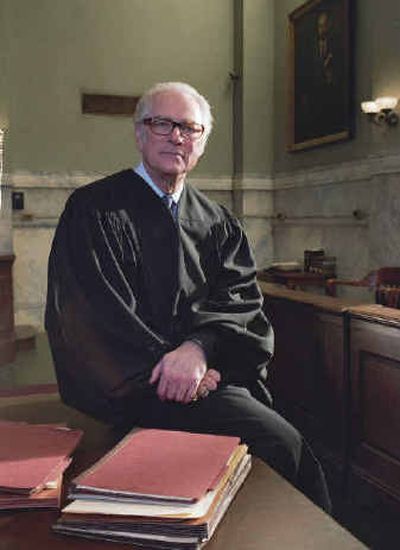Behind doors

On most legal and courtroom drama series, the jury is seen but not heard — unless it’s the voice of the foreman delivering a verdict.
But the new Fox series “The Jury” goes behind the closed doors of the jury room to not only see the jurists but hear them hash out a decision.
The one-hour legal drama series is the brainchild of Oscar-winning director Barry Levinson (“Rain Man”) and Tom Fontana, who previously co-produced “Homicide: Life on the Streets” and “Oz,” along with former “Homicide” writer James Yoshimura.
Levinson says that a fictional series concentrating so much on the jury hasn’t really been done before and may be a risk, but “that doesn’t mean you can’t do it.”
“We felt it made sense,” he says. “At the cornerstone of our judicial system are 12 people selected to come up with verdicts.”
Each episode deals with a new case and a new jury.
The first of tonight’s back-to-back episodes finds jurors deciding the guilt or innocence of a teenage boy accused of killing a basketball prodigy by shooting him through his bedroom window from an adjacent rooftop during a raucous New Year’s Eve celebration.
In the second, another teen boy charged with killing his girlfriend claims it was a Romeo and Juliet-style suicide pact, but he chickened out after she went first.
Though a good percentage of the action takes place in the jury room, the series doesn’t suffer from claustrophobia. As the jurists deliberate each case, the details of the crime in question are shown via flashbacks, testimony, etc.
The catch is that the jury may not be right in its decision. For instance, testimony could mislead the jurors. Whether the jury made the right decision is revealed at the end of each episode, when the real version of the facts is shown.
The actors who make up the jury will change each week, but there are cast constants: Levinson, who plays Judge Horatio Hawthorne, as well as lawyers, bailiffs and others played by Anna Friel, Shalom Harlow, Billy Burke, Adam Busch, Cote de Pablo and Jeff Hephner.
Levinson originally wanted the judge to be played by Sidney Lumet, the director of 1957’s “12 Angry Men,” the best film ever made about a jury.
“I was the cheapest actor I could find,” says Levinson. “What happened was Sidney Lumet was working on something for our (production) company, and Sidney had done the original ‘12 Angry Men.’ We thought, ‘How about Sidney to do the judge?’
“We were shooting the pilot in December, and we’d gotten snow and freezing rain, and Sidney slipped and hit his head. He had swollen, black eyes, and we needed to replace him. I was directing the pilot, and not having the time to get another actor, Tom Fontana said, ‘Why don’t you do it?’
“So I did the pilot. When the show was picked up, we were so busy with all the other elements, I ended up staying the judge.”
To play one of the lawyers, Levinson went to Friel, a British actress most recently seen in the film “Timeline.” She had worked with the director in his film “An Everlasting Piece.”
Says Friel: “We got on very well when we shot ‘An Everlasting Piece,’ and we both said that we would work together again one day. I was in Argentina doing something else when I got this message: ‘Will you fly back?’
“American TV wasn’t something I was interested in in the past. But with Barry Levinson, I knew it was going to be good and interesting.
“When I read the script, I thought it was well written; the dialogue was very fluent. And I liked the premise. I think it’s new and unique.”
The series is set in New York City but shot in New Jersey. Proximity to New York was important, says Levinson, since the weekly jury pool requires a large actor pool.
“We bring in 12 new people every week as jurors,” says Levinson. “There’s a very large pool of actors in New York, which is important when you think about how many actors we go through.”
“The Jury,” like “Law & Order,” doesn’t delve too much into the private lives of the ensemble of characters played by Friel, Harlom et al. But that may change.
“I think the series will eventually go into the lives of the lawyers,” says Friel. “You have to do that, to have someone for the audience to invest in.”
Adds Levinson: “As is the case with any series, as you stay on the air new things present themselves. We’re bound by the format of the show to a certain degree, but I assume other elements would evolve.”